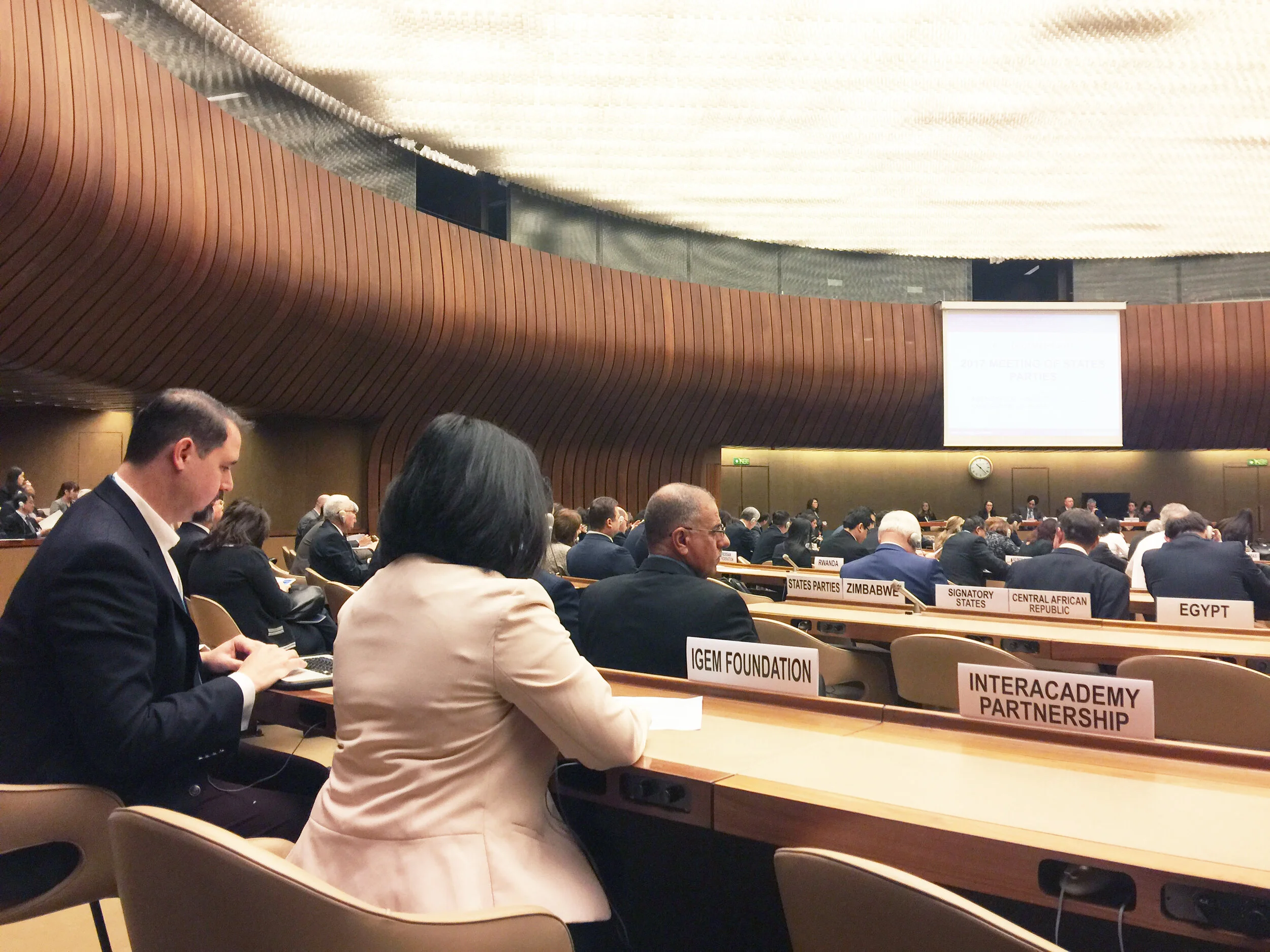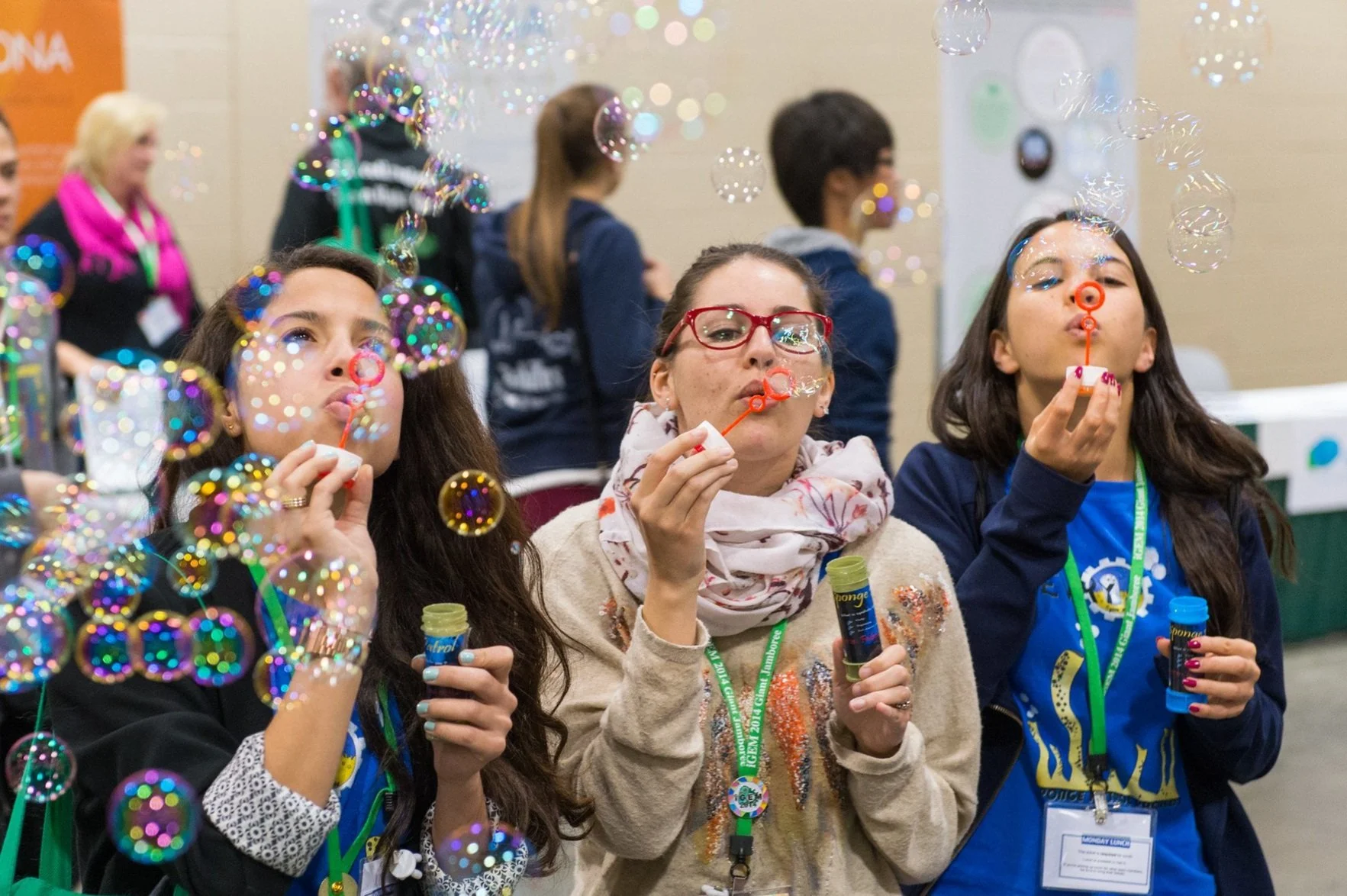From synthetic biology to biología sintética, biologie synthétique, and 合成生物学: a shared iGEM vocabulary
By Cibele Zolnier and Tessa Alexanian
On behalf of the After iGEM Open Science and Accessibility Steering Group
iGEM’s new purpose is to make sure synthetic biology gets developed everywhere by everyone. Yet, how can we talk about “synthetic biology” all around the world when most scientific papers (and podcasts, blog posts, et cetera) are still developed and shared only in English? iGEM’s community includes over 60,000 people from more than 40 countries. In 2020, the iGEM Video Universe received videos in more than 15 different languages, showcasing not only outstanding projects but also the amazing linguistic diversity of our teams.
This year, the Open Science and Accessibility Steering Group (OScA) launched the Translation Initiative to support a more inclusive community, where language is a bridge and not a barrier. We aim to create a shared vocabulary concerning iGEM and synthetic biology that is translated into different languages. By creating multilingual content, we’re trying to overcome the barrier of a single language and make our field and community accessible to more people.
Past iGEM teams have worked hard to give access to their synthetic biology projects in many languages. One inspiring example is the Language Project by IIT-Madras. The team initially aimed to popularise science in India by creating content in 15 Indian languages. After achieving the initial goal, their project went beyond borders and, by collaborating with other iGEM teams, the team gathered videos in 20 foreign languages. Another project from the 2019 University of Washington team created an interactive synthetic biology curriculum that was translated into 16+ languages and eventually expanded to the organization SynBio for Everyone.
What we’ve learned from these examples and from our own efforts is that creating multilingual content for iGEM and synbio-related material is not a simple task. We need more than internet translation to share concepts like the “engineering design cycle” and “human practices”. This project requires communicative translation; an approach that translates ideas not only into other languages but also into other cultures. Our communicative translation requires collaboration with local people across our global community, thus implementing a crowdsourced translation of Synbio-related content.
One of the most essential steps of this project is to create a shared glossary. This will be a database where people can find (and add) words and terms to be used to make sure all translated content is cohesive, standardizing the process. The terms and content translated are also important, which inspired the translation of the Values and Risks workshops.
Why start with the Values and Risks workshops?
We started the Values and Risks workshop series in 2020 as a way for our community to come together virtually and think collectively about what we value. In the workshop, ambassadors lead iGEMers through “The Tale of Team Example,” in which a hypothetical team runs into safety, security and ethical challenges inspired by past iGEM teams. Some of the challenges will be familiar to many teams (“what happens if you want to interview patients for your project?”) and some will hopefully be more far-fetched (“what happens if you accidentally engineer a dangerous new pathogen?”).
Merged slide showing one scenario in The Tale of Team Example, as translated into French, Spanish, and Mandarin. (Each individual workshop used slides in a single language!)
At each point in the story of this team, the ambassadors pause and ask everyone in the workshop: are there any potential harms here? Although the workshops provide some answers to this question, there isn’t supposed to be one “correct” answer. Rather, the goal is for everyone present to practice making judgments about the risks we might encounter as synthetic biologists.
Upon reflection ... it didn’t seem quite right to only do that thinking in English. It’s hard to quickly improvise creative answers in your second (or third, or fourth!) language, and that’s exactly what the 2020 workshops were asking everyone to do. And so this year, we translated the workshop materials so that the ambassadors could lead iGEMers through “The Tale of Team Example” in Spanish (el cuento de equipo ejemplo), French (le compte de l’équipe exemple), and Mandarin(例团队的故事) as well as English.
Comparison of some of the slides from the Values and Risks Workshops, shown side-by-side in four different languages.
For the translation of the Values and Risks Workshops we recruited Ambassadors and Steering Group members to do the translations to French, Spanish and Mandarin. These are three UN official languages and widely spoken in the iGEM community, so they seemed like good targets to begin our multilingual journey. We hope that these new languages invite great thinking on safety and security that we'd otherwise have missed.
Getting from biosecurity to biocustodia, biosécurité and 生物安保
One of the important lessons from translating the Values and Risks workshop materials is that simple internet translation is not enough when it comes to scientific terms. Even with fluency in English, finding the right word in another language can be tricky. For the translation to Spanish, for example, there were some discussions around “Prevent Harm”. In English, prevent is written the same in infinitive (to prevent) and on a phrase (prevent something) but in Spanish, and many other languages, there are different words for these two scenarios and that generates a difference between making an order, making a request or simply saying “to prevent harm”. But after some thoughtful deliberation, the group found the best alternative:
“I wouldn’t really say difficult, but we had some differences of opinion regarding the word prevent. However, it was also a great opportunity for us as a team. After some debate, we arrived at a conclusion and chose successfully how to translate the word: Prevent Harm - Prevé Daños”
- Diego Rosa, OScA Steering Group member
Overall, all groups were incredibly engaged and worked together to tell the tale of the Team Example in different languages. As Diego also told us, it was entertaining to work in the translation of a story. The other iGEMers that helped with the translation of the Values and Risks Workshops were Abril Diosdado Hernández, Ansley Gnanapragasam, Heber Torres, Jianzhe Yang, Mélodie Dupré, Qitong (George) Luan, Sara Ghoul and Zhandong Jia.
What’s next for the Translation Initiative?
The translation of the Values and Risks Workshops is just the first of many resources the Translation Initiative plans to bring into new languages. Currently, the Open Science and Accessibility Steering Group is expanding our glossary, and we will make it available to the public soon. We will also begin an external recruitment process to find volunteer translators for additional languages. You can check out the promotional video, and get updates about the Translation Initiative on JOGL.
Beyond the glossary, we are also planning to create multilingual videos and written content introducing iGEM and Synthetic Biology concepts. We hope, with the help of our community, to continue creating valuable resources that translate (literally and figuratively) the new purpose of iGEM.









